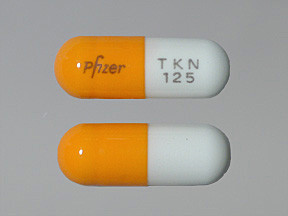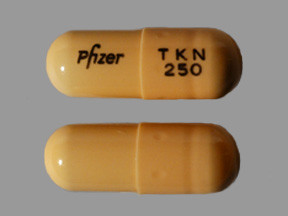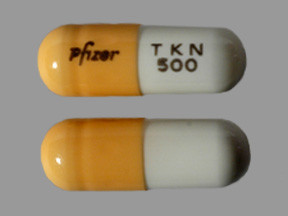DOFETILIDE - ORAL
PHONETIC PRONUNCIATION: (doh-FET-ill-ide)
COMMON BRAND NAME(S): Tikosyn
GENERIC NAME(S): dofetilide
Uses
USES: This medication is used to treat certain types of serious (possibly fatal) irregular heartbeat (such as atrial fibrillation/flutter). It is used to restore normal heart rhythm and maintain a regular, steady heartbeat. Dofetilide is known as an anti-arrhythmic drug. It works by blocking the activity of certain electrical signals in the heart that can cause an irregular heartbeat. Treating an irregular heartbeat can decrease the risk for blood clots, and this effect can reduce your risk of heart attack or stroke.
How to use DOFETILIDE - ORAL
HOW TO USE: Read the Medication Guide provided by your pharmacist before you start taking dofetilide and each time you get a refill. If you have any questions, ask your doctor or pharmacist. Take this medication by mouth, usually twice daily with or without food or as directed by your doctor. To reduce your risk of serious side effects, it is very important to take this medication exactly as prescribed. The dosage is based on your medical condition, kidney function, and response to treatment. Use this medication regularly to get the most benefit from it. To help you remember, take it at the same times each day. Tell your doctor if your condition does not improve or if it worsens.
Side Effects
Precautions
Interactions
Overdose
Images

- color
- light orange
- shape
- oblong
- imprint
- Pfizer, TKN 125

- color
- light orange
- shape
- oblong
- imprint
- Pfizer, TKN 125

- color
- light orange
- shape
- oblong
- imprint
- Pfizer, TKN 125
Reviews
Warning
WARNING: Though this medication often gives great benefits to people with irregular heartbeat, it may rarely cause a serious new irregular heartbeat. Therefore, when starting, restarting, or increasing your dose with this drug, your doctor will recommend that you stay in the hospital for at least 3 days for proper monitoring. Before your doctor can prescribe this medication for you, your doctor must have completed the Tikosyn Education Distribution Program. Only pharmacies that have enrolled in the T.I.P.S. program may dispense this medication to you. Talk with your doctor about the benefits and risks of taking this medication.
Disclaimer
IMPORTANT: HOW TO USE THIS INFORMATION: This is a summary and does NOT have all possible information about this product. This information does not assure that this product is safe, effective, or appropriate for you. This information is not individual medical advice and does not substitute for the advice of your health care professional. Always ask your health care professional for complete information about this product and your specific health needs.


No Reviews Yet